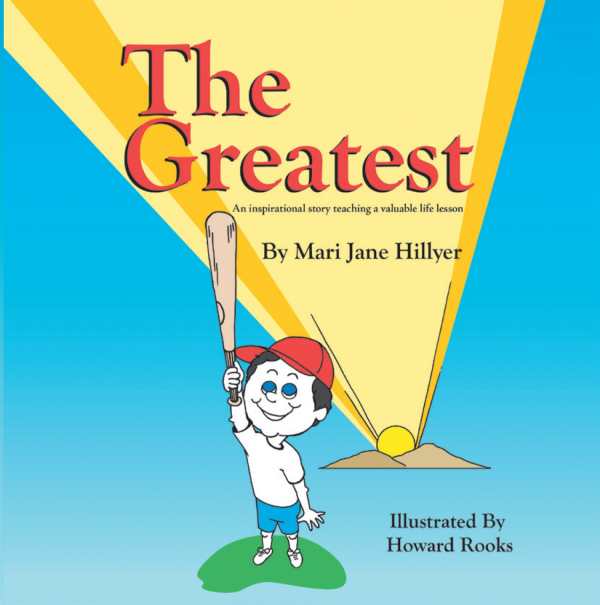The Greatest
An Inspirational Story Teaching a Valuable Life Lesson
The Greatest is nostalgic about childhood and concerned with multigenerational love.
Mari Jane Hillyer’s sincere picture book The Greatest explores a favored pastime that leads to appreciation for a parent’s encouragement.
A boy practices batting with his father, who pitches. He joins a team, and his father cheers from the stands. But an injury leads the boy to set baseball aside. Years later, the boy is a married adult and a father himself. He introduces his own son to the game. His son grows up to join the major leagues and is dubbed “The Greatest” by his fans. The story ends when the son determines that his aging father deserves that title most.
Vague, unnamed characters and swift plot movements make the book’s sentiment broad. The boy is defined by his big, blue eyes—a feature that’s repeated, and that his own son inherits—but this trait plays little role in the tale. Leaps in time span familiar ground, in which a descendant fulfills an elder’s thwarted dreams, but characters’ growth is limited to physical changes, and success at baseball arrives with seemingly few barriers, making the family’s joyful outcome pat.
The book’s cartoon artwork is minimalist, employing a narrow range of colors and few backgrounds to convey specific places. In a curious decision for a story that’s centered on father and son bonding, the characters are depicted individually, on separate pages. Most of the illustrations favor equipment, such as bats and gloves, over people. The effect is less warm than the text suggests. But the style is succinct, with some pleasing repetition of phrases that are satisfying to read aloud, such as “He gave the boy a bat- / it was just his size. / He gave the boy a glove- / it was just his size.”
The Greatest is a forthright children’s tale that’s nostalgic about childhood and concerned with multigenerational love.
Reviewed by
Karen Rigby
Disclosure: This article is not an endorsement, but a review. The publisher of this book provided free copies of the book and paid a small fee to have their book reviewed by a professional reviewer. Foreword Reviews and Clarion Reviews make no guarantee that the publisher will receive a positive review. Foreword Magazine, Inc. is disclosing this in accordance with the Federal Trade Commission’s 16 CFR, Part 255.

